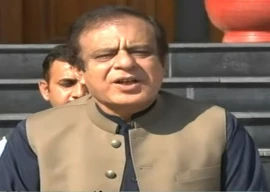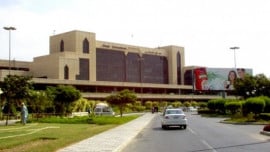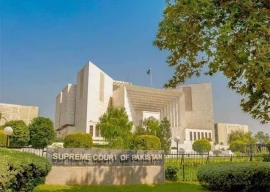
The commercial launch of third-generation (3G) mobile internet services — which are already in the testing phase — is likely to take place shortly, at least in key metropolitan areas.
Given the controversies that had long delayed the spectrum auction, the acquisition of high-speed mobile broadband technology is certainly a milestone. However, the real test for the telecom industry will begin once the technology starts to roll out commercially.
In the first phase, the four operators that got a 3G licence will be launching mobile broadband in major cities like Lahore, Karachi, Islamabad, Rawalpindi, Peshawar, Quetta and Multan or Faisalabad, depending upon the operator’s priorities. However, the deployment will not come without challenges.
The country’s cellular mobile operators (CMOs) will face financial as well as technical challenges once they start launching 3G services. It may, therefore, take a while before the country could exploit the full potential of mobile broadband.
For example, 3G should give a minimum of three megabits per second (mbps) of internet speed. Secondly, it will be costly to set up mobile towers in rural areas that have low user base compared to the urban centres because it increases per user cost — thus a nationwide penetration may take a while. Similarly, rolling out 3G in cities will not be easy either.
To penetrate closed structures, such as shopping malls, basements of buildings and walled structures, CMOs will need to install indoor solutions for network support. Moreover, the CMOs will face right-of-way issues while deploying more towers. They will need permissions from respective agencies, such as cantonment boards, where the towers have to be set up – this will be costly because these agencies will charge a significant amount to facilitate telecom businesses.
Likewise, establishing more towers will require more energy to keep them running. With the country facing energy shortage, these towers, powered as they are by diesel, will add to the cost of business.
To put everything in a nutshell, the more expensive the deployment becomes the longer the operators take for country-wide penetration of mobile broadband – even in the UK, some companies took as long as three years to complete 3G rollout while India’s 3G penetration still remains very low despite it launched the service in 2010.
Despite these challenges, the Pakistan Telecommunication Authority says the licence price was reasonable thus leaving the CMOs with more money to invest in infrastructure. The PTA struck the right balance between the short-term gain (the upfront licence fee) and the long-term benefit (the nationwide penetration of 3G), the regulator says.
Published in The Express Tribune, May 7th, 2014.
COMMENTS (11)
Comments are moderated and generally will be posted if they are on-topic and not abusive.
For more information, please see our Comments FAQ































1713509570-0/Taylor-Swift-Album-Release-(1)1713509570-0-270x192.webp)























@Khalid Afghan: You Have Been The Laughing Stock Of The World For The Past 20 Years
In view of the infrastructure economic justification the mobile sets consume more power for accessing 3G infrastructure. Hence reduced battery life for mobile broadband. The regulator should facilitate investment incentive as long term tax holiday for local development of handset that would run for long time on 3G, which imported brands do not offer. Technology exist and can be successfully deployed in Pakistan.
@Khalid Afghan: Now please grow some wheat, rice and lentils also in ur vast farmlands ! .. promote livestock, poultry and fish farming. If you wont become food independent, you would become even a greater laughing stock of the world.
@Khalid Afghan:
Why do you have to laugh at us? Fine your country is ahead of us in this race but so what? Arent we supposed to be brothers getting encouragement from each other? Are you trying to tell us that even though you are inferior you won this race? No you are not inferior to us and there's no race going on here. You have the technology, good enough. We are going to have it too even if it is late, not as if it is a war.
Haha, Afghanistan is laughing at Pakistan. We have 4 telecom companies operating 3G services in Afghanistan since many years ago. One of them has 4G services as well. Pakistan is a laughing stock of the region.
Such a flimsy analysis you know and plus the minimum speed on 3g network is not 3 mega bits per second (Mbps)
@Garam Aaanday: Ok. Yours is the only knowledgeable comment here. But you should be careful about handling hot eggs. You don't want to get burned.
The article does not make much technical sense at all. Infact with the Arrival of MIMO Systems along with Spatial Multiplexing we are getting enhanced speed with almost the same Power of a current SISO Antenna. Moreover we dont need more towers at all. Infact the LTE and future systems will make use of Beamforming ( A technique to steer the beam in a certain direction ) and with Beamforming many issues will be curtailed along with Much better power consumption.
Also the existing GSM/GPRS infrastructure and network elements could be reused for the UMTS deployment as well. Only Node B and RNCs have to be added and the existing towers are enough for them.
Regarding to the indoor environments i must say that small buildings and homes dont require any additional equipment. Only Dense Urban environments need those solutions and they are cheap and already Micro and Pico cells along with the FemtoCell technology is being explored. In a Nutshell 3G+4G Deployment requires less than 1 year to be implemented throughout Pakistan.
Correction: According the IM, the KPI for 3G is 256kbps minimum to pass the QOS and 2mbps for 4G.
Except for Zong, pretty much every CMO has already upgraded most of its BTS locations. However since 3G is on 2100MHz, some more sites will need to be added, and right of way / access permissions is one of the key things already on the agenda. Lets not forget, they have already deployed BTS units in the past, so they can do some more as well, however the process can be made smoother with regulatory support. The equipment upgrade means the old equipment has been switched, not that the new equipment has been added by the side. Also, newer equipment tends to be more energy efficient.
That said, if you look at the IM, it gives a detailed timeline of the roll out sequence and coverage density over a period of time that needs to be met.
This article is almost funny. Why would new towers require more energy? the old ones will go off then. And also, you don't need to install new towers for 3G services, you just replace the transponders and transmitters on those towers with newer technology ones. And also, Islamabad and Rawalpindi are already enjoying trial 3G services. Which long way are you talking about? And talk about rural areas, who wants 3G access in a remote village badly and urgently? Why do we Pakistanis love to be pessimistic about everything?
I thought they already had the infrastructure in place having rolled it out well in advance of the auction? The author also doesn't touch on the issue of international bandwidth prices. We've had wimax for years now but that wasn't successful because international bandwidth prices are too high in Pakistan. PTCL and transworld maintain a tight grip on those.